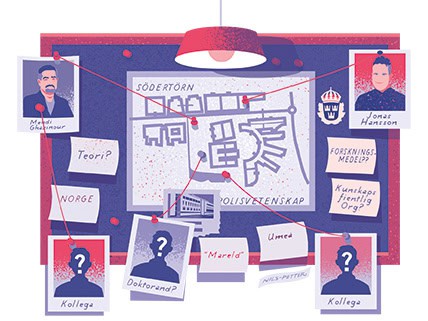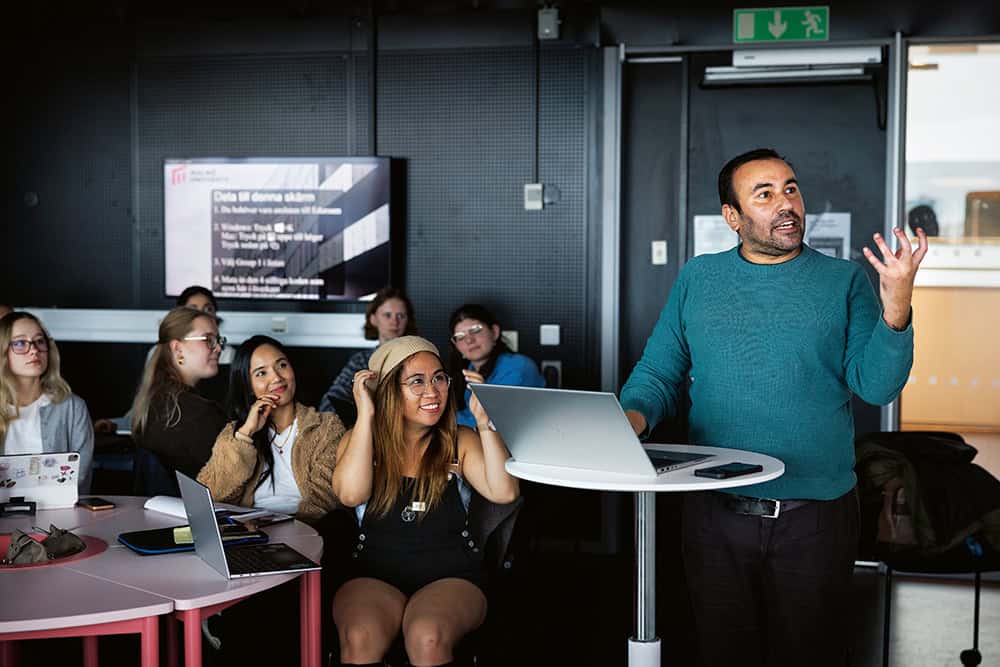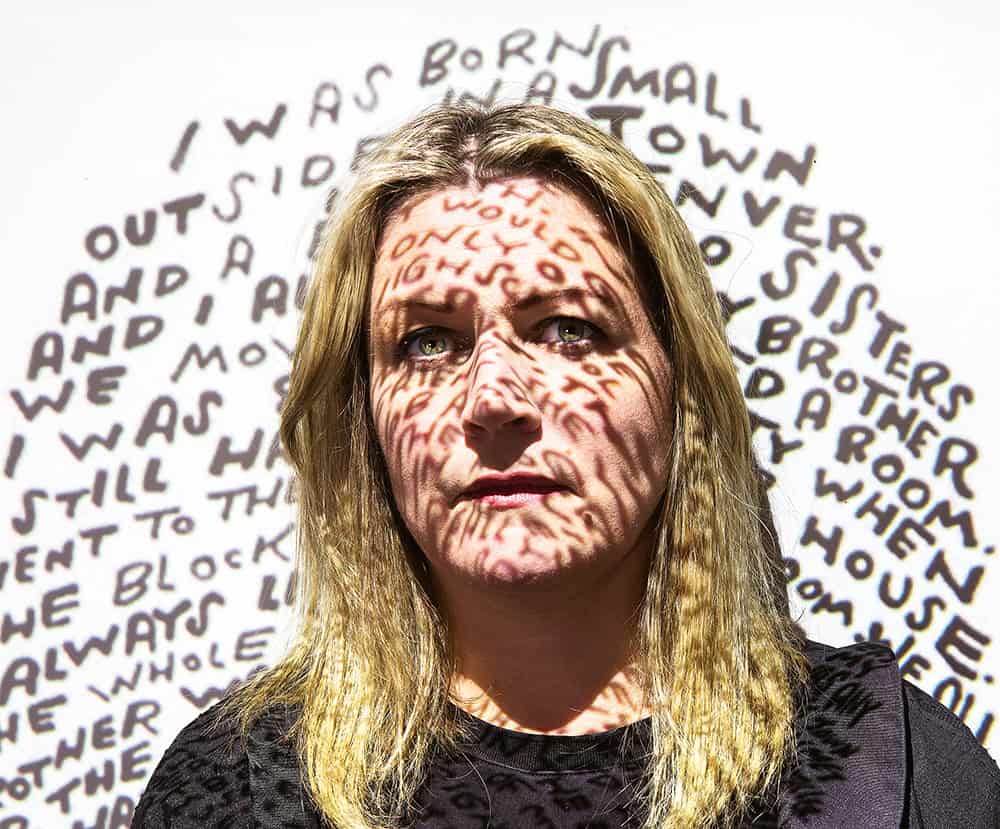Websites offering academic texts to download for free have been around since the 1990s. In recent years, these illegal sites have grown in popularity to an extent that Zakayo Kjellström, a doctoral candidate in media and communication studies at Umeå University, “couldn’t have imagined” when he began his survey in 2020. Now his thesis is almost complete and he plans to defend it this summer.
Because shadow libraries violate copyright laws and impact their profits, it is not uncommon that academic publishers sue the sites. Several representatives have been involved in legal proceedings. But even if a site is shut down, it soon pops up again. It is a never-ending process.
“Recently, the site Anna’s Archive has become huge,” says Kjellström. “What makes it unique is its ambition to aggregate all the shadow library collections online, but also to make all the data available to everyone.”

Zakayo Kjellström
Doctoral candidate, Umeå University
It contains downloadable files with 105 million academic articles and 37 million books in 64 different languages. Anyone can add to the collection. Or save a backup. Blogs and forums have grown up around sites like Sci-Hub, Library Genesis and Z-Library, where many people are active.
“This development illustrates the recent boom and almost formalisation of shadow libraries,” says Kjellström.
There also seems to be a fairly widespread acceptance of the sites in academic circles. A study by Cornell University shows that articles on Sci-Hub receive 1.72 times as many citations as articles in journals “of similar quality” that are not on the site. It is not uncommon for researchers to openly thank a shadow library in their articles for making the research possible. It is difficult to know how many Swedish researchers use the sites.
“To some extent, it is still a shadow world,” says Kjellström. “Not everyone knows about them, but as soon as people find out about them, they start using them. At least that’s my impression.”
He has not heard of any researchers, in Sweden or elsewhere, being prosecuted for downloading from – or linking to – these illegal sites. Academic publishers, who lose money as a result of the usage of shadow libraries, do not seem interested in pursuing legal action against individual researchers.
“They just want to bust the creators and shut down the sites.”
Kjellström describes today’s system of scientific publishing as ”broken”, with dual financial barriers to open access to research results. The subscription costs for publishers’ journals are high, as are the fees charged to researchers who want their articles to be read by everyone. Shadow libraries’ ’black open access’ is seen by many as a symptom of a dysfunctional system.
“I am increasingly starting to see them as a potential solution. Their existence has become a bargaining chip in negotiations with publishers. They can also serve as a temporary solution to the impasse that I feel the academic publishing industry is at right now.”
Wilhelm Widmark is vice-chair of the Bibsam Consortium, which represents Swedish higher education institutions and state agencies in negotiations with academic publishers. He tells us that a new agreement was signed earlier this year with Elsevier, one of the largest publishers. The outcome was slightly lower costs and open publication for Swedish researchers in Elsevier’s publications. Still, he is not entirely satisfied.
“The publisher is not transparent about its costs in relation to the prices it sets. And we know that it has a profit margin of 40 per cent in its business model. That is money that we think should remain in research.

Wilhelm Widmark
Vice-chair of the Bibsam Consortium Foto: Cecilia Burman
Shadow libraries have not been mentioned in the negotiations, which have been tough at times. However, the sites are the “elephant in the room” that both parties are of course aware of. But Widmark would not call those sites ”open access”.
“They are a reaction to a collapsed market, where a lot of research is locked behind paywalls, an oligopolistic market that does not benefit academia. But as a state employee, I would not encourage anyone to use them.”
Zakayo Kjellström believes that many positive attempts are being made to make research accessible at all levels of society. But it is difficult to compete with shadow libraries by legal means.
“They are well organised, free from advertising and hidden costs, and easy to use. I think the use of shadow libraries will continue to grow.”



















